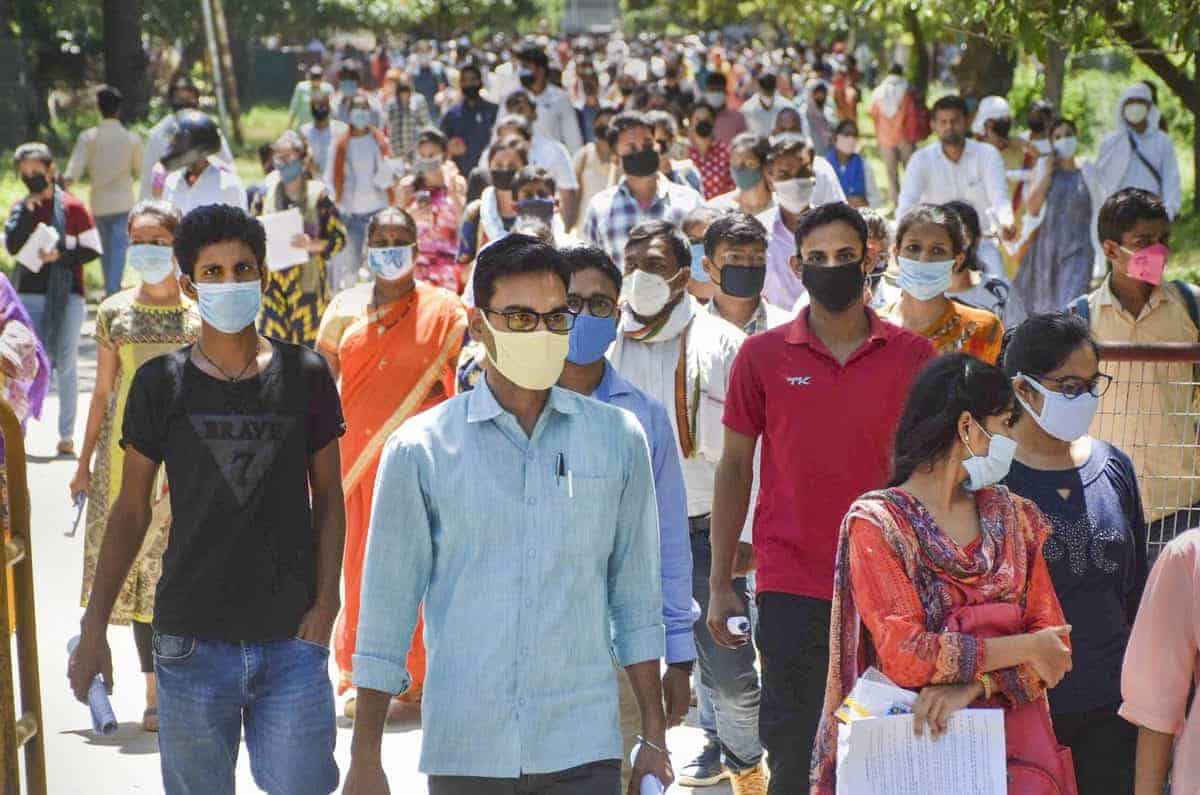
“Education should be opened up. COVID may continue for a year more. Are you going to wait for another year? Do you know what is the loss for the country and the career peril for the students?,’’ Justice Arun Mishra observed while rejecting the plea for postponement of NEET. The situation now is very unpredictable and procrastination simply means hoping for good normal days which are not likely to come soon.
When a virus develops into a health hazard of pandemic proportions, with no proper medical treatment, then the only way out is to start to learn to live with it. Self-resistance and immunity boost can work best. In March 2020, when the lockdown was first announced for 11 days, the schools and colleges were closed for the period but as the situation continued to worsen, educational institutions were closed sine die.
In June, the unlock 1.0 started with the standard of operating measures(S.O.M) and preventive measures in place for shopping malls, restaurants, shops, religious places, work places etc, while the containment zone areas were to observe lockdown with strict restrictions. Again, the unlock 2.0 rolled out rules easing the movement and other restrictions with continued night curfew. However, it did not permit opening of schools and colleges.
Subsequently in unlock 3.0, the gyms and yoga centers were opened and the night curfew was revoked but the educational institutions remained closed. As of today, the number of COVID-19 cases recorded across the country is over 35 lakhs with 64,000 deaths.
Amid the rising cases, Andhra Pradesh Chief Minister Y S Jagan Mohan Reddy has announced the decision to reopen all schools and colleges from September 5 and October 15 respectively. Just then, the Union Government issued Unlock 4.0 guidelines which further restricted the opening of schools and colleges till September 30 and asked the States to take directions from it in easing it in areas without containment. It allowed the opening of metro train services and public gatherings with a ceiling of 100 persons.
There are different views on this issue in various States. Now the question is, how far this idea of reopening educational institutions is going to work out? And, if thereopening is further postponed, how long this situation is going to last? What safety measures are to be taken for students if the educational institutions are reopened?
Around the world, the schools and colleges started opening with safety measures in some places, and to everyone’s surprise, a high school in Indiana (USA) had to shift to online learning after just two days. And students in Mississippi (USA) were forced to quarantine after classmates tested positive for Coronavirus during the first week of classes. This signals that opening up educational institutions and gathering of students in mass numbers is still dangerous and the COVID pounder may affect all despite the safety measures taken.
Considering the seriousness of the problem, the UPSC Civil Services Prelims examination, which was scheduled to be held on May 31, was postponed to October 4. Other important examinations like NEET, JEE and other common entrance tests are scheduled in September and the Union government has decided to conduct these by providing transportation and other required measures for safety purposes. The government is firm on its decision of conducting these exams.
However, with the rising COVIDcases, it is a wait and watch game to see if this really happens and how successful will be the government in taking the precautions. The government departments and administrative wings are holding virtual meetings. The government has even tried the online classes but it also did not prove to be of any help with numerous complaints.
On the other hand, when we take the opinion of parents on opening of institutions, they seem reluctant to send their wards to schools and colleges anytime this year. This could in one way be taken as the result of all-pervasive fear of COVID that has gripped their minds. But this fear has to go. People need to be calm and they have to understand that once the vaccine is out, then the pandemic can be controlled and there won’t be any more fatalities.
Considering all pros and cons, some steps can be taken for re-opening educational institutions. Firstly, the Union government has to allow the States to conduct the entrance tests (EAMCET, ICRT, PG Entrance Tests, UGC NET, IGNOU OPENMAT, Delhi University entrance test etc) scheduled in September with the safety measures. Then, after observing the situation, the schools and colleges can be re-opened in the last week of September.
To begin with, for ensuring containment of COVID, the schools and colleges should function only for three times in a week. The government will have to take the steps for public transportation and for ensuring sanitization. The government should also set up a committee to look into how the academic schedule can be continued and whether it will be possible to implement the new National Education Policy.
Accordingly, the government should also run awareness program for parents to make them ready to send their wards to schools and colleges. Regular check-ups of school and college goers should be done periodically to ensure their safety. Thereafter, gradually, things will get back on track and the educational institutions can be opened full-fledged.
Fatima Hasan is a Hyderabad based journalist

